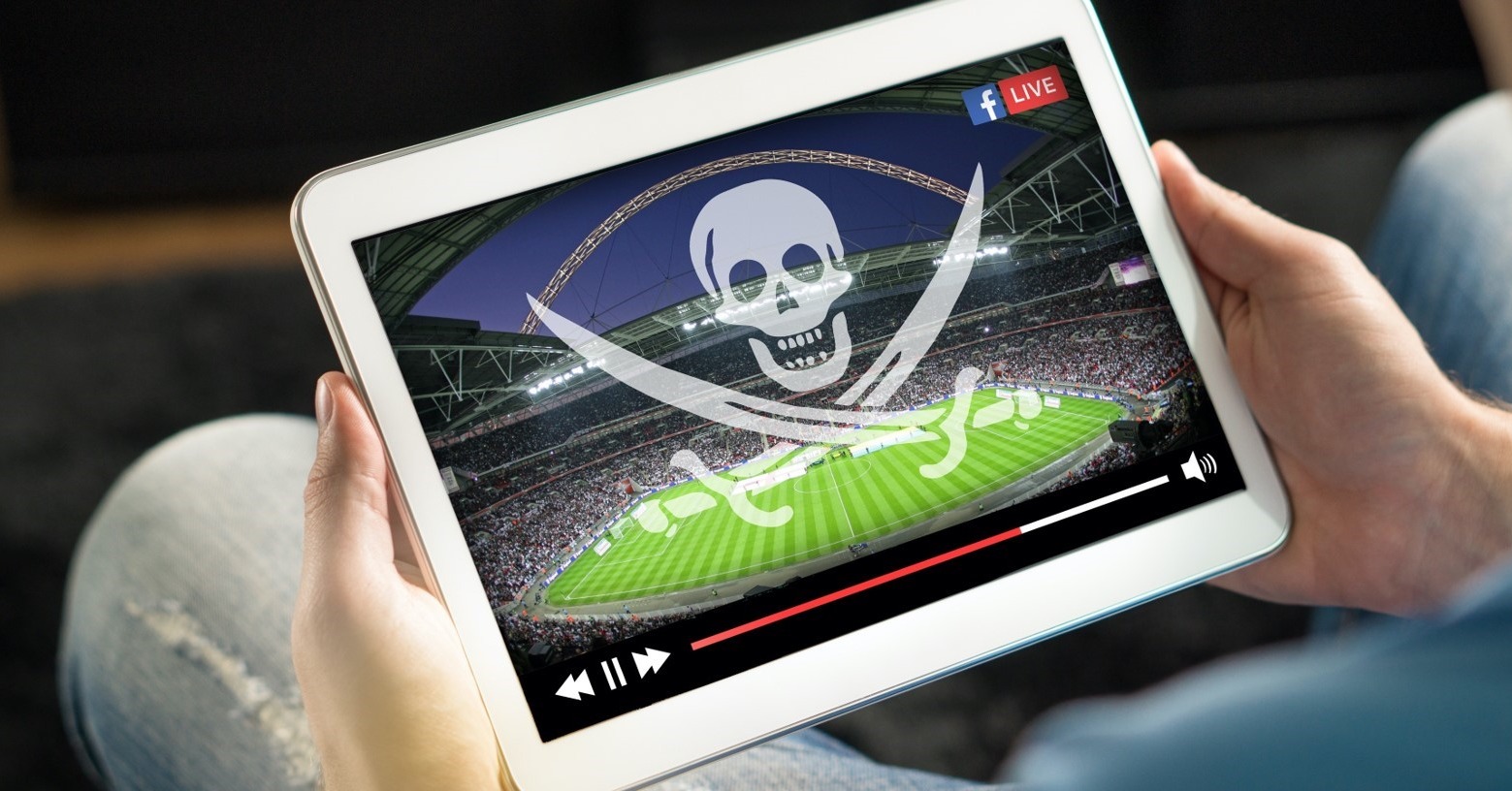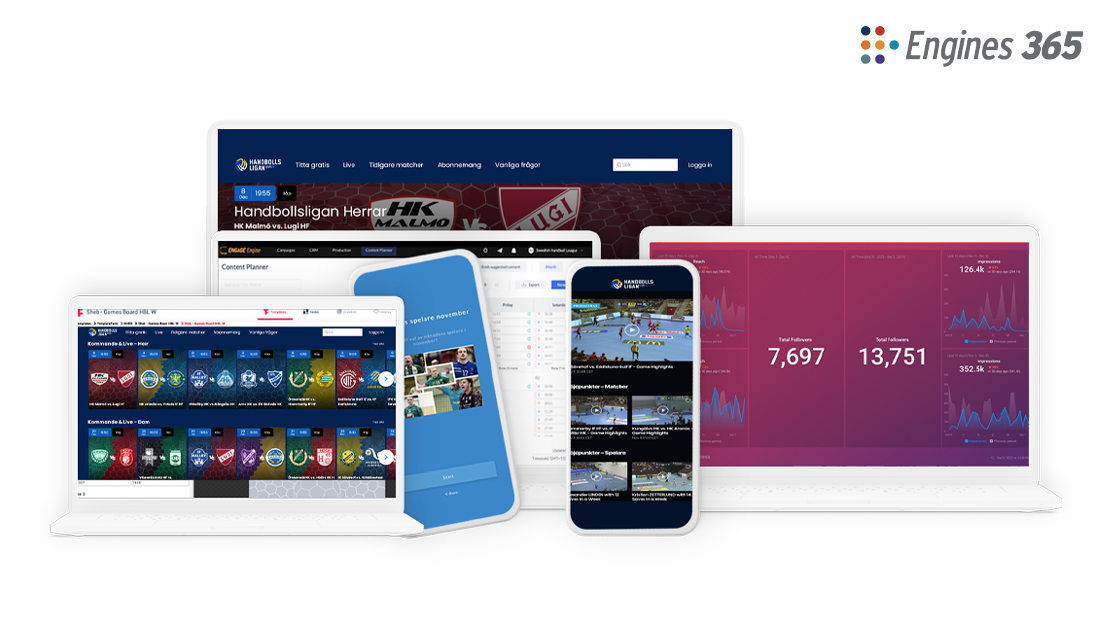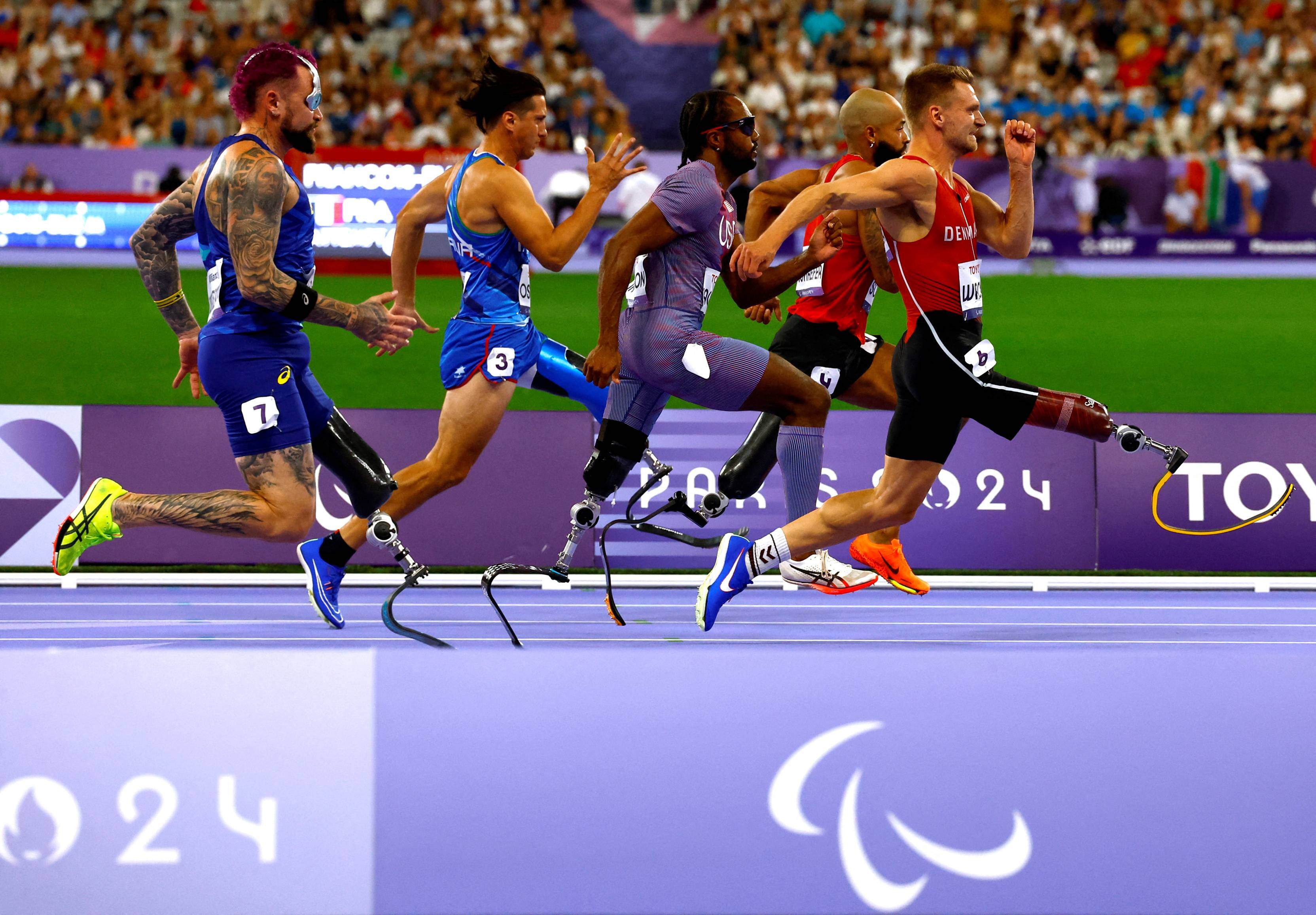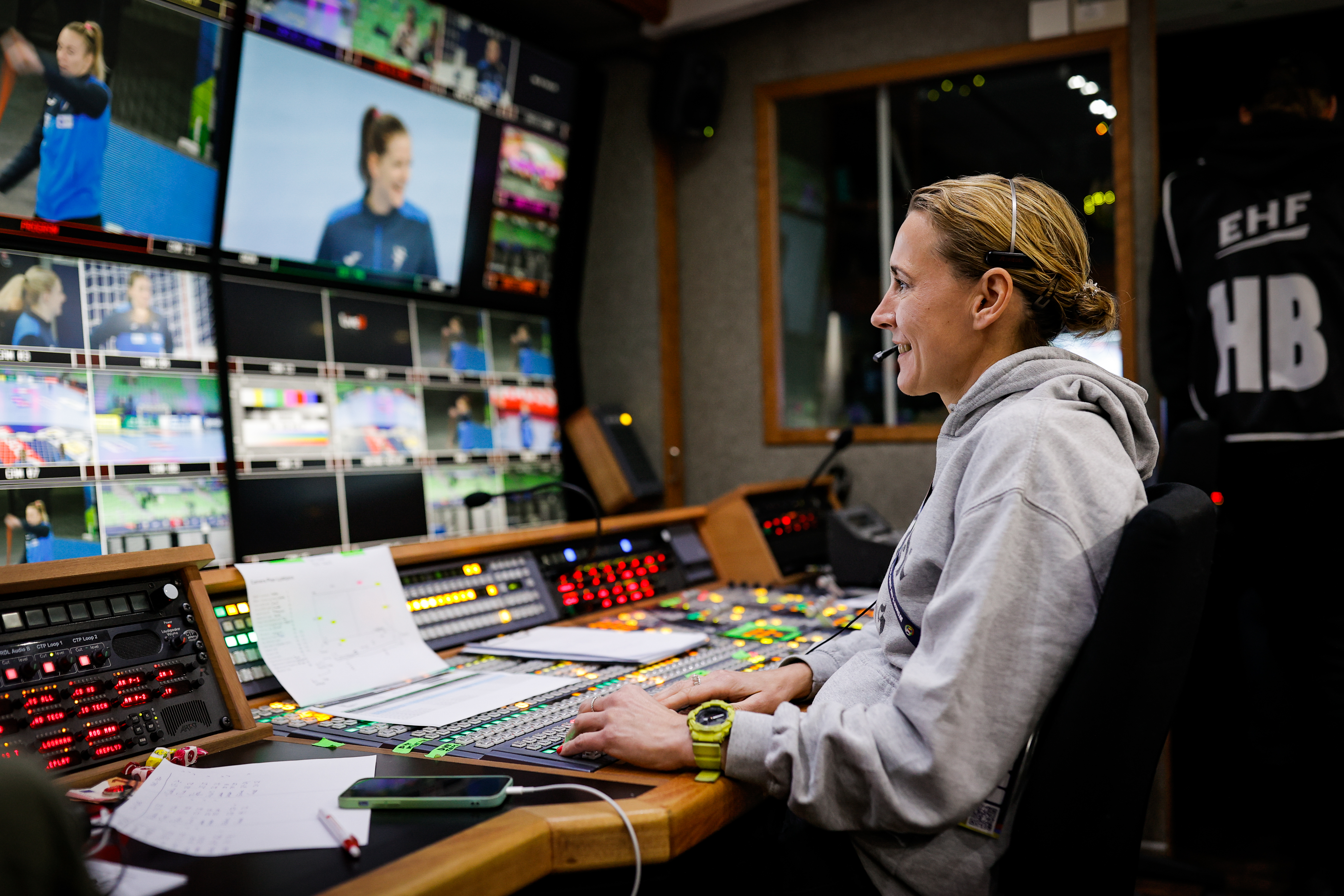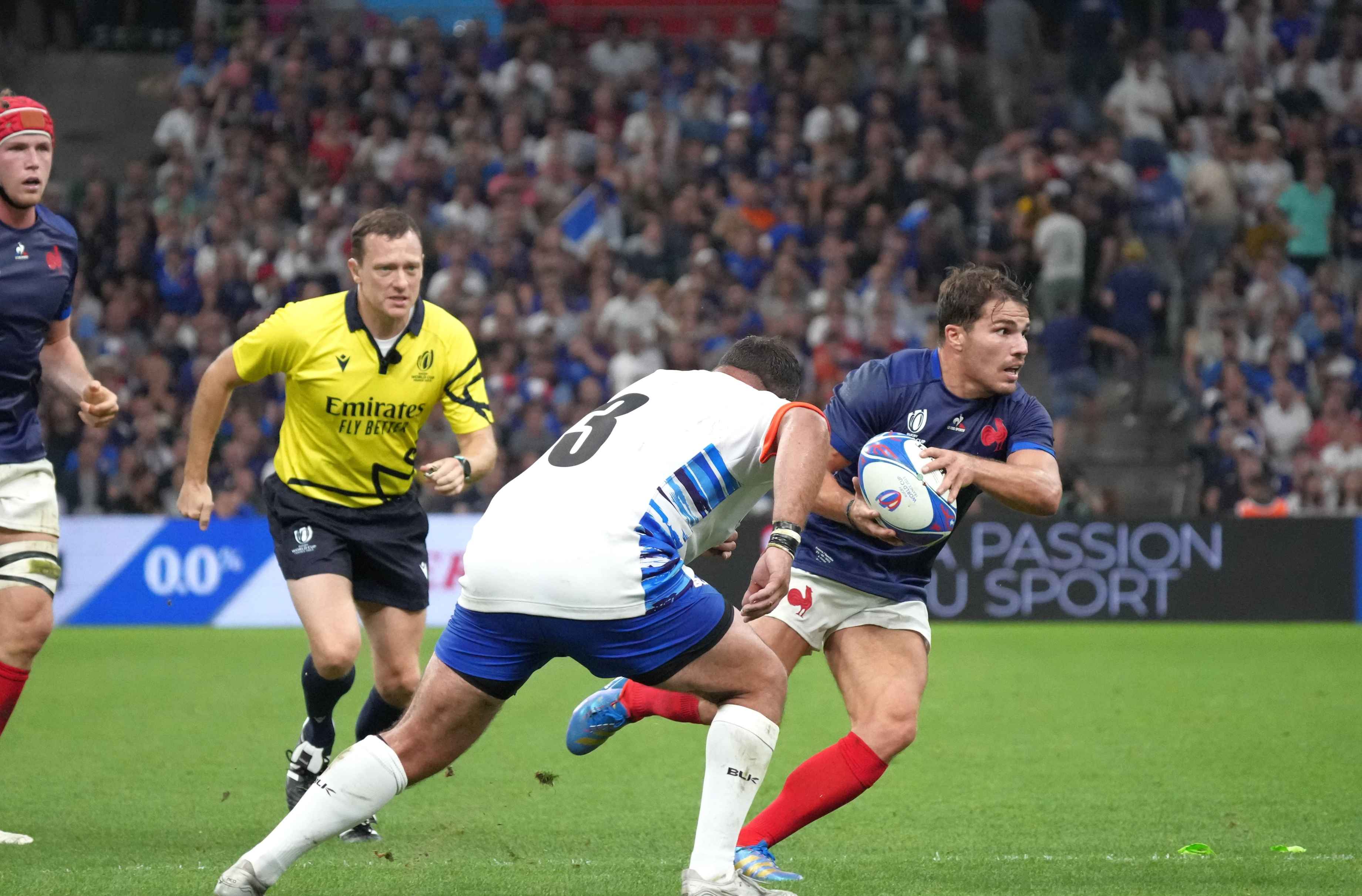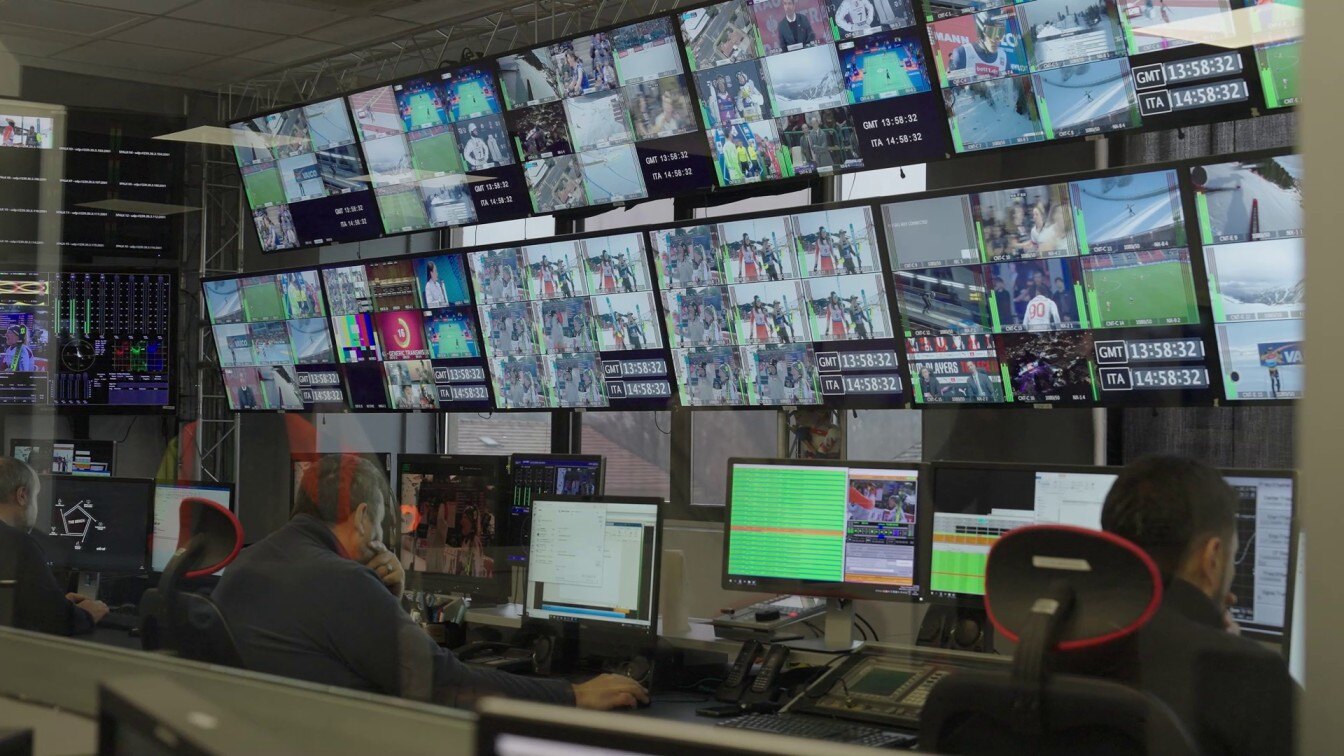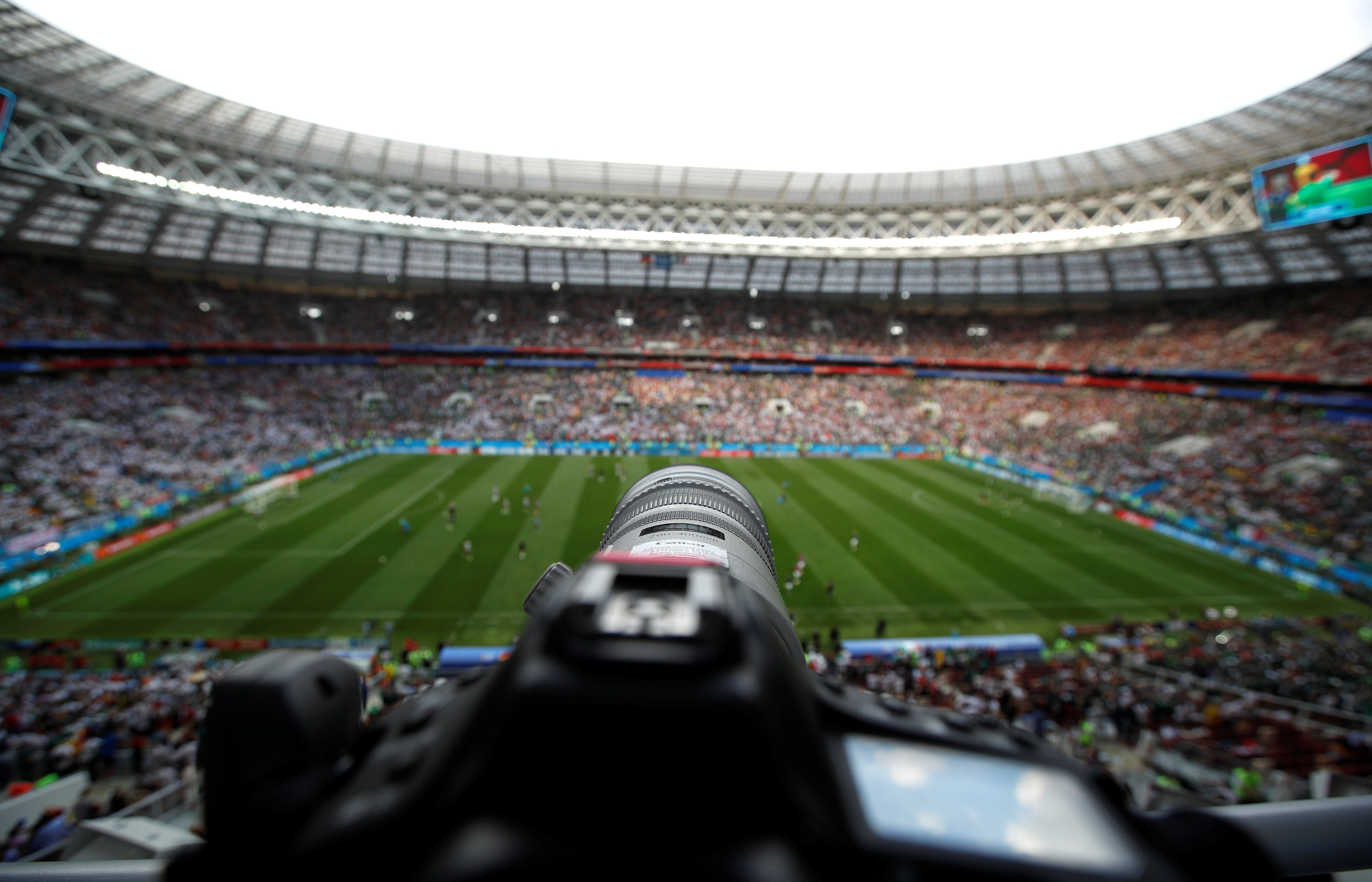The hidden heroes: How to bring a sports broadcast to the masses
.jpg?width=2000&height=1500&name=20240809_180651%20(1).jpg)
Behind the scenes of Paralympic production: Delivering world-class coverage for a multi-sport event
The rise of women in sports TV production: breaking barriers and changing perspectives
Behind the screens: How a master control room brings live sports to millions
The new broadcasting techniques scrumming down for the Rugby World Cup 2023
The balance of technology in broadcast
Delivering live sports broadcasts to millions is no easy feat at the best of times. There are a multitude of aspects to consider when contemplating just one game at one venue. So, when it comes to multi-day, multi-venue and multi-sport events such as the Olympic Games, the complication multiplies.
This was the task Infront Productions and HBS faced in August. The production arms of Infront produced content for a dedicated sub-Saharan African television feed over the course of the Games. In the process, it provided the perfect opportunity to tell the behind-the-scenes story of what it takes to bring the greatest moments in sport to the world. Find out how to pull off such a massive operation.
The role of senior producers
At the heart of every broadcast is a senior producer who manages the process. As Glen Mackay one of our Senior Producers put it, the role involves immense responsibility.
“We are doing a live broadcast that amounts to 150 hours for the tournament,” he explained.
With so many sports and a variety of disciplines to cover, being a senior producer requires not only experience but also a deep understanding of each sport. “The reason I'm given this responsibility is experience and the knowledge of multiple sports, which is not easy with the Olympics,” Glen said. “We have a lot [32] of sports, and there are a lot of different aspects to each of those sports.”
What many people might not realise is the effort that goes into ensuring lesser-known athletes also get their moment in the spotlight.
“I feel an obligation to some of those smaller athletes,” Glen added, noting that it’s rewarding when everything comes together.
Working on the Olympics requires creating a solid foundation for the team. With so much at stake, the team is judged on their commentary and broadcast across three languages – English, French and Portuguese. It’s a challenging job, but with experience and clear processes, it’s possible to manage the demands of such a prestigious and complex event.
Adapting to technical demands
While the production team takes care of the content, the technical side of broadcasting is equally critical. As Eleonora Erba, project leader pointed out, there were significant challenges in setting up the necessary infrastructure for Paris. “We made big efforts to set up and adapt all the technical workflow just using our internal resource and equipment,” she explained.
One of the main tasks was establishing the necessary cabling between the Master Control Room (MCR) and the gallery, ensuring that all feeds from the Olympic Broadcasting Services (OBS) were received without a hitch. This meticulous work ensures that every shot, every camera angle, and every moment is delivered seamlessly to millions of viewers.
With numerous departments involved, it’s essential that all communications run smoothly. “I make sure that everything is in place and working well,” she continued. “I’m in all the communications, there to intercept any potential needs the different departments may have.” From planning and scheduling requests to ensuring everything is operational, the technical team plays an indispensable role in the broadcast’s success.
Despite the challenges, the team takes pride in their work.
“We did hard work to put in place all the necessary systems for this project,” she continued. Beyond the technical side, there’s also a personal connection – especially when it comes to covering sports close to the heart.
Commentators’ perspectives
The commentators are the voices that bring the action to life, each with their own unique story and background. For Sérgio Marcos, a Portuguese commentator from Mozambique, being part of the team is a dream come true.
“This is the first time that I am by myself, coming alone from Africa to join Infront,” he said. His role involves running Portuguese commentaries, and like his colleagues, he’s driven by a passion for delivering a high-quality experience to viewers.
“Everyone is trying to do his best in his role,” Sergio explained. “People are responsible, for example, for joining the materials we need for our commentaries.”
Each day, the teams work hard to ensure that everything is prepared – from printing out start lists to organising the programme – so that commentators can focus on what they do best: narrating the action. For Sergio, one standout moment was covering the men’s pole vault session. “That was a moment of a lifetime,” he said.
Angus Torode, another commentator, has a diverse background, covering football, rugby, and athletics. “We are judged on the commentary,” he noted. “My preparation for this Olympic Games, whilst it’s more expansive, is the same that I do all the time.” This includes researching Paris to digging into the specific events at the Games.
Similarly, French commentator Patrice Dumont has his own Olympic journey. “I used to practice speed skating,” he explained. “I couldn’t qualify for the Olympics, so maybe that’s a way for me to enjoy the Olympics because I couldn’t do that as an athlete so I can do it as a commentator.” Despite the twists and turns of his career, Patrice finds joy in the work he does now, especially when covering high-profile events like the 100m final.
The human element behind the broadcast
What truly stands out in the world of sports broadcasting is the human element – the dedication, passion, and pride that every member of the team brings to their role. Whether it’s the senior producer managing dozens of sports across multiple languages, the technical team ensuring every cable is perfectly in place, or the commentators narrating the action, each person plays a vital part in bringing the Games to life.
At its core, sports broadcasting is technology telling stories, highlighting moments of triumph, and giving athletes – from the biggest names to the lesser-known stars – the chance to shine.
“What we’ve done is allow them to have their moment in the sun that they deserve,” Glen added remarked. “That for me is probably the most rewarding part of this job.”

